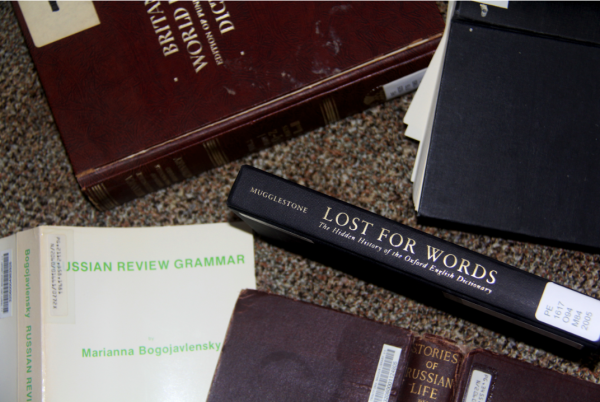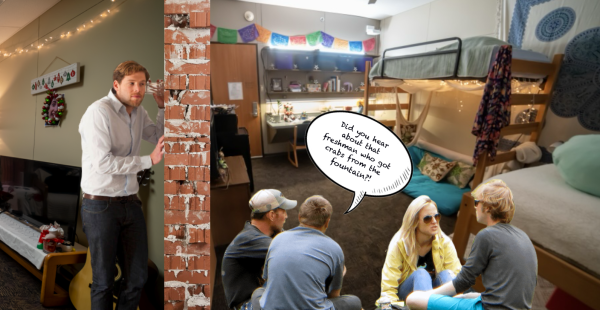The sad price of a salad bar
The connection between accessible education, financial aid and perpetuating food inequality
In a 2016 episode of his podcast, “Revisionist History,” journalist Malcolm Gladwell dives into the topic of collegiate food inequality by comparing two universities — Bowdoin and Vassar College. The two colleges have nearly identical academic standings and sticker tuition prices. However, Gladwell finds that Bowdoin’s dining hall puts Vassar’s to shame.
Bowdoin offers condiments and bread made from scratch, lobster bakes on Mondays, eggplant parmesan pancakes and locally sourced venison during deer season. Students at Vassar, on the other hand, complain about a lack of varied flavors, a sad salad bar and the indigestion the food gives them. Many claim they stick to breakfast at the dining hall because it’s the only reliable meal.
The parallels between Vassar and Trinity’s dining halls are striking. I constantly hear my friends and peers complain about the salad bar, the lack of healthy options and poor food quality. There are countless claims of bugs in the salad leaves, uncooked chicken and food poisoning. I firmly believe I could walk up to any Trinity student and ask for their opinion on Mabee’s food and they would have at least one horrific meal experience.
What Gladwell found to explain the difference between Bowdoin and Vassar’s food quality is the amount of financial aid the schools give annually. Vassar spends $60 million dollars annually on scholarships, with the average scholarship averaging $51,508. Twenty-two percent of Vassar’s undergraduates are Pell Grant recipients. Bowdoin admits only half as many.
Trinity University has similar statistics to Vassar. Forty-five percent of first-year students receive financial aid, and 43% of students receive financial aid, with the average aid package being $47,234.
The effects of Trinity’s generous financial aid were clear on Tuition Stop Day, which occurred on Jan. 19. On this day, the university advertised that the tuition the school receives only covers 53% of expenses, while the other 47% is covered by donors.
To admit more lower-income students, universities must offer more financial aid. However, the more financial aid a school offers, the less money the university can spend elsewhere. So, schools must make trade-offs, such as the quality of their dorm amenities or dining halls.
The problem these trade-offs create is that families who are able to afford full tuition would much rather attend a school that offers higher-quality amenities and food services. As a result, schools like Bowdoin that offer better food because they have the resources to do so will attract families who will pay full tuition. Therefore, schools like Trinity miss out on these families who prioritize quality food and amenities over supporting financially inclusive institutions.
The only way schools like Trinity can continue to make quality education accessible to low-income families is through generous donors like the ones we have now. Though it is unfortunate that Mabee’s food quality is at times questionable, it is the ethical price to pay to attend or donate to a school like Trinity to allow low-income students to receive a first-class education like the one we receive at Trinity.
While it is important for institutions like Trinity to offer accessible education, trading off quality food only continues food inequality. Students from lower-income families are unable to supplement their diet with healthy foods from the grocery store in the same way more affluent students are able to. So, they’re stuck with low-quality produce and rotating from flavorless food to flavorless food.
Eating healthy food is crucial for a good learning environment. According to the Center for Disease Control, access to healthy food improves memory, participation and even test scores. While Trinity students don’t need Monday lobster bakes, homemade bread or eggplant parmesan pancakes, the least Trinity could provide is a salad bar without wilting, soggy salad leaves.

My name is Rachel Oliver (she/her), and I am a junior economics major and urban studies minor. I am the managing editor, and this is my third year working...

Hi guys! My name is Lily Zeng, and I am a sophomore from Memphis, TN majoring in Urban Studies with an interest in a Spanish major or minor. My favorite...










